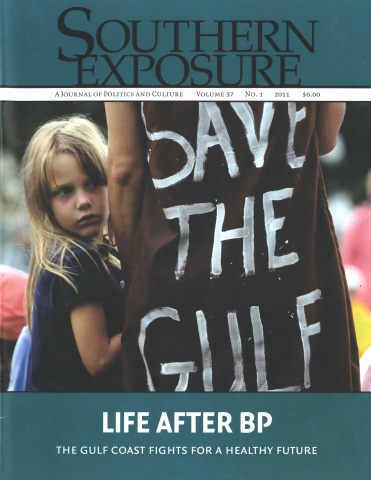Where Does the Oil Waste Go?

This article originally appeared in Southern Exposure Vol. 37 No. 1, "Life After BP." Find more from that issue here.
After the BP Deepwater Horizon disaster, the media devoted round-the-clock coverage to the well capping and cleanup efforts. But not much attention was given to where BP oil spill waste was being disposed. After the Environmental Protection Agency approved BP’s waste management plan in mid-June 2010, environmental justice leaders were the first to raise concerns that the plan would turn low-income and people of color communities in the Gulf Region into the dumping grounds for BP oil waste.
Although people of color make up about 26 percent of the coastal counties in Alabama, Florida, Mississippi, and Louisiana, most of the oil waste was slated to be sent to these communities under BP’s government-approved plan. On July 15, 2010—the earliest reporting period—39,399 tons of oil waste went to nine landfills; of that amount, 21,867 tons (55.4 percent) were disposed in communities where a majority of residents are people of color, and 30,338 tons (77 percent) of oil waste went to communities where the percent people of color was greater than the overall rate in the host county.
A year after the disaster, the pattern continued. As of April 10, 2011, 106,409 tons of BP waste went to 11 landfills, of which 45,032 tons (42.3 percent) went to landfills in majority people of color communities, and 90,554 tons (85.1 percent) went to landfills located in communities whose percent people of color population exceeded the county’s percent people of color.
These communities not only must contend with the negative impacts of being on the fence line with oil waste landfills, but also face environmental health threats from increased truck traffic and vehicle emissions, especially from diesel trucks.
These residents are invisible and forgotten Americans —another injustice that needs to be corrected.
Tags
Robert D. Bullard
Robert D. Bullard directs the Environmental Justice Resource Center at Clark Atlanta University. His most recent book is Environmental Health and Racial Equity in the United States. A version of this piece originally appeared at OpEdNews.com. (2011)
